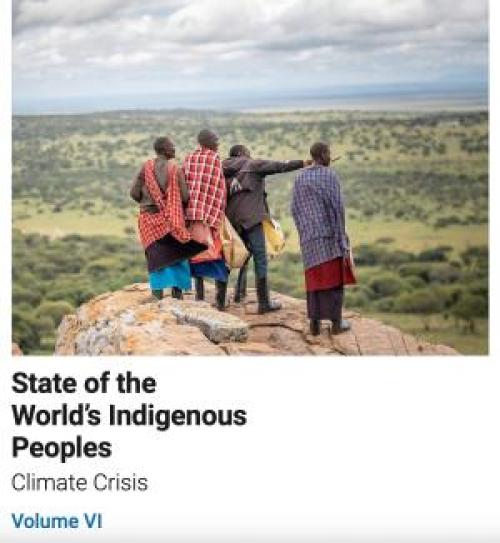
The sixth edition of the State of the World's Indigenous Peoples focuses on Climate Crisis. It focuses on the vital role of Indigenous peoples in addressing the impacts of climate change. Although Indigenous Peoples account for only around 5 per cent of the world’s population, they effectively manage and protect an estimated 80 per cent of the Earth’s biodiversity and about 40 per cent of protected areas and ecologically intact landscapes. Since Indigenous Peoples first came to the United Nations, they have emphasized the fundamental importance of their relationship with their lands, territories and resources, which hold a deep cultural and spiritual significance within their societies…
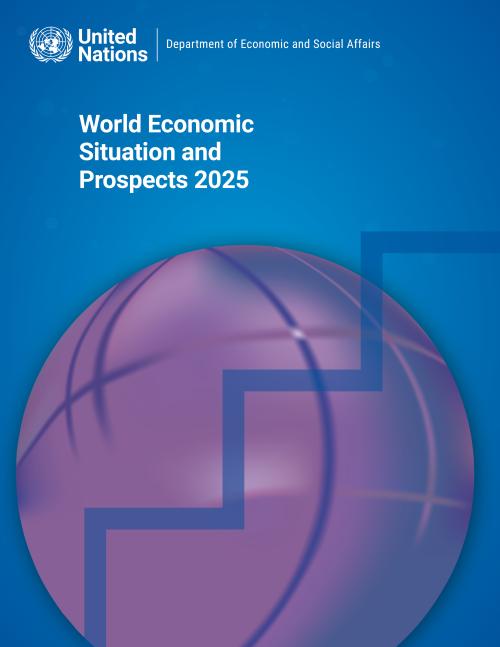
Global economic growth is projected to remain at 2.8 per cent in 2025, unchanged from 2024, according to the United Nations flagship report, World Economic Situation and Prospects (WESP) 2025. While the global economy has demonstrated resilience, withstanding a series of mutually reinforcing shocks, growth remains below the pre-pandemic average of 3.2 per cent, constrained by weak investment, sluggish productivity growth, and high debt levels.
The report notes that lower inflation and ongoing monetary easing in many economies could provide a modest boost to global economic activity in 2025. However, uncertainty still looms large, with risks stemming from geopolitical conflicts,…
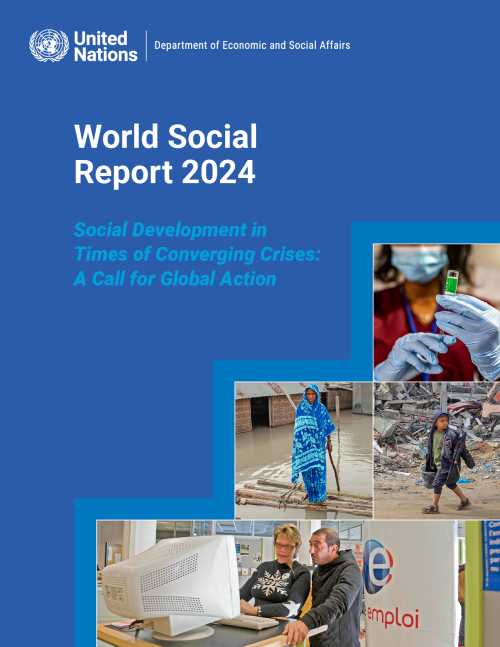
According to the World Social Report 2024, urgent global action is needed to support national efforts to address the setbacks caused by the recent global crises, and to avoid the conversion of future shocks to crises.
Titled “Social Development in Times of Converging Crises: A Call for Global Action”, the World Social Report 2024 explains that, in our current global policy environment, shocks more readily turn into crises that cross boundaries, demanding international action. Particularly as such crises disproportionately impact the most vulnerable people, societies and countries.
Crisis-driven setbacks in poverty reduction and unemployment
Successive shocks,…
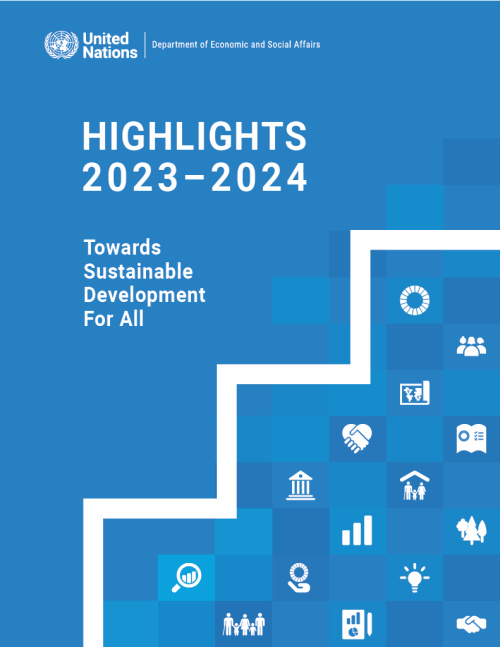
The UN DESA Annual Highlights report is a tool to communicate the contributions of the Department to the realization of internationally agreed development goals and shared social, economic, and environmental aspirations. It showcases the Department’s role in gauging trends, building capacities, and shaping solutions. UN DESA Highlights 2023–2024 covers activities over the period of the 78th Session of the General Assembly (September 2023 – August 2024) and reflects the Department’s response to the set priorities and expressed needs of Member States. Seven (7) thematic chapters showcase how UN DESA put its expertise to the task of supporting Member State efforts to implement the 2030…
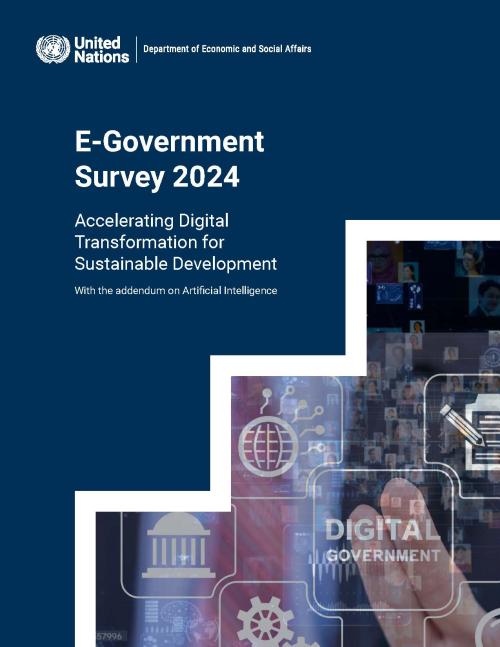
This thirteenth edition of the United Nations E-Government Survey, released in 2024, provides a comprehensive assessment of the digital government landscape across all 193 Member States. The 2024 Survey highlights a significant upward trend in the development of digital government worldwide, with increased investment in resilient infrastructure and cutting-edge technologies. The global average value of the E-Government Development Index (EGDI) shows substantial improvement, with the proportion of the population lagging in digital government development decreasing from 45.0 per cent in 2022 to 22.4 per cent in 2024.
Despite significant progress in digital government…
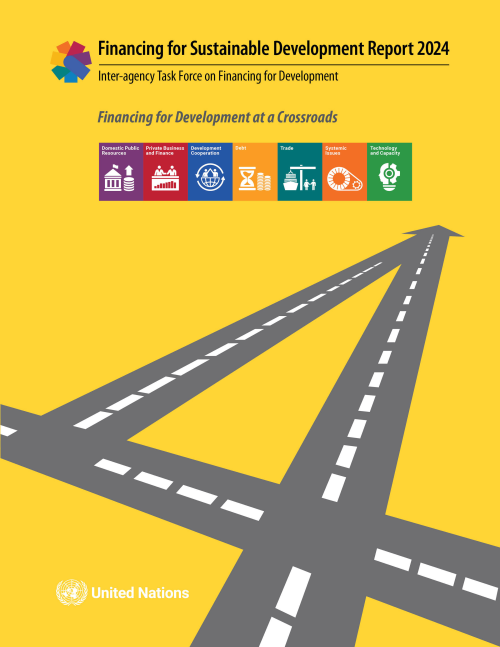
The world is facing a sustainable development crisis. The 2024 Financing for Sustainable Development Report: Financing for Development at a Crossroads finds that financing challenges are at the heart of the crisis and imperil the SDGs and climate action. The window to rescue the SDGs and prevent a climate catastrophe is still open but closing rapidly.
Financing gaps for sustainable development are large and growing – the estimates by international organizations and others are coalescing around $4 trillion additional investment needed annually for developing countries. This represents a more than 50% increase over the pre-pandemic estimates. Meanwhile, the finance divide has not…
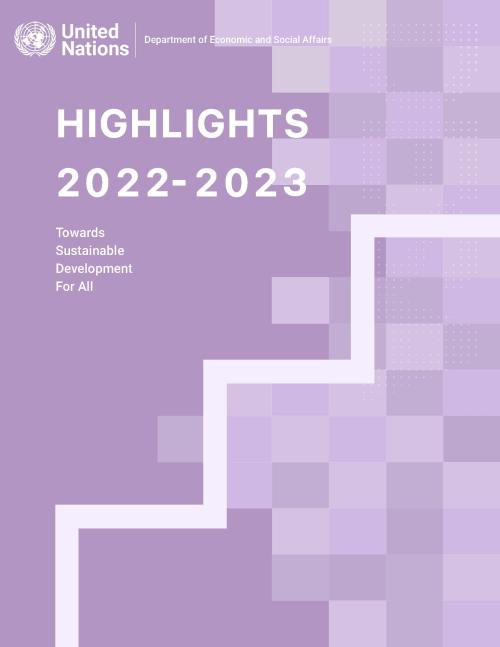
The UN DESA Annual Highlights report is a tool to communicate the contributions of the Department to the realization of internationally agreed development goals and shared social, economic, and environmental aspirations. It showcases the Department’s role in gauging trends, building capacities, and shaping solutions. UN DESA Highlights 2022-2023 covers activities over the period of the 77th Session of the General Assembly (September 2022 – August 2023) and reflects the Department’s response to the set priorities and expressed needs of Member States. Seven (7) thematic chapters showcase how UN DESA put its expertise to the task of supporting Member State efforts to implement the 2030…
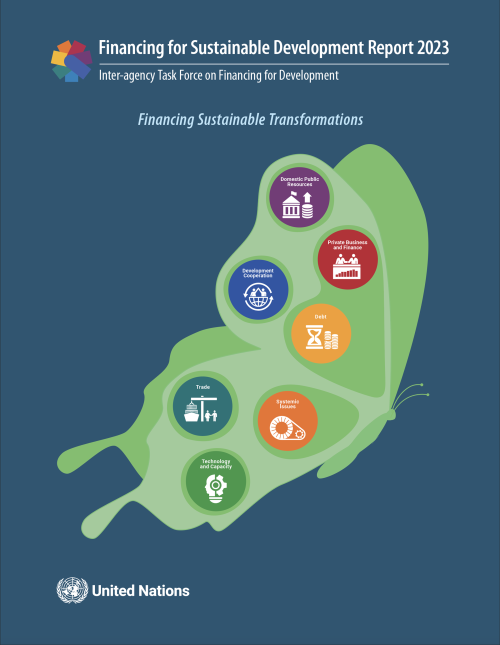
Sustainable development prospects continue to diverge between developed and developing countries. The 2023 Financing for Sustainable Development Report finds that SDG financing needs are growing, but development financing is not keeping pace. The war in Ukraine, sharp increases in food and energy prices, and rapidly tightening financial conditions have increased hunger and poverty and reversed progress on the SDGs. If left unaddressed, a “great finance divide” will translate into a lasting sustainable development divide.
Stakeholders must maintain a long-term focus on resilient and inclusive development, while addressing near-term crises. Delaying investment in sustainable…
The United Nations E-Government Survey 2022 is the 12th edition of the United Nations’ assessment of the digital government landscape across all 193 Member States. The E-Government Survey is informed by over two decades of longitudinal research, with a ranking of countries based on the United Nations E-Government Development Index (EGDI), a combination of primary data (collected and owned by the United Nations Department of Economic and Social Affairs) and secondary data from other UN agencies.
This edition of the Survey includes data analysis in global and regional contexts, a study of local e-government development based on the United Nations Local Online Service Index (LOSI),…
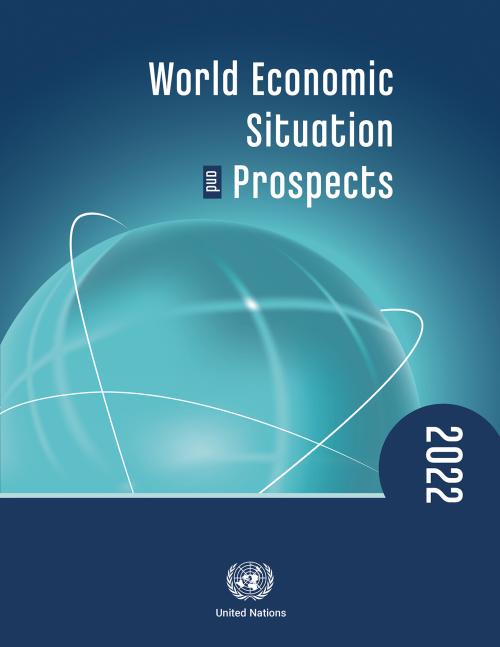
Global growth prospects have weakened significantly amid the war in Ukraine, rising energy, food and commodity prices, soaring inflation and tightening monetary policy stances by major central banks. The world economy is projected to grow by 3.1 per cent in 2022, marking a downward revision of 0.9 percentage points from our previous forecast released in January 2022. The baseline forecast faces significant downside risks from further intensification of the war in Ukraine and potential new waves of the pandemic.
Growth forecasts for the United States, European Union and China have been revised downward, with the European Union registering the most significant downward revision. The…
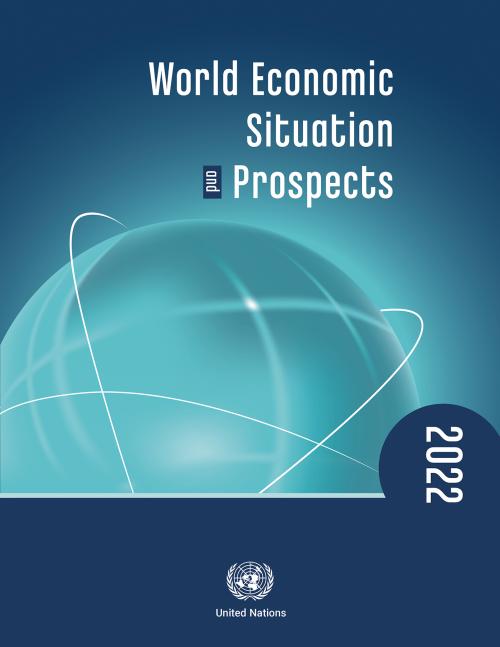
The global economic recovery is facing significant headwinds amid new waves of COVID-19 infections, persistent labour market challenges, lingering supply-chain challenes and rising inflationary pressures. After expanding by 5.5 per cent in 2021, the global output is projected to grow by only 4.0 per cent in 2022 and 3.5 per cent in 2023, according to the United Nations World Economic Situation and Prospects (WESP) 2022.
The robust recovery in 2021 – driven by strong consumer spending and some uptake in investment, with trade in goods surpassing pre-pandemic levels — marked the highest growth rate in more than four decades, the Report highlighted. Yet the momentum for growth –…
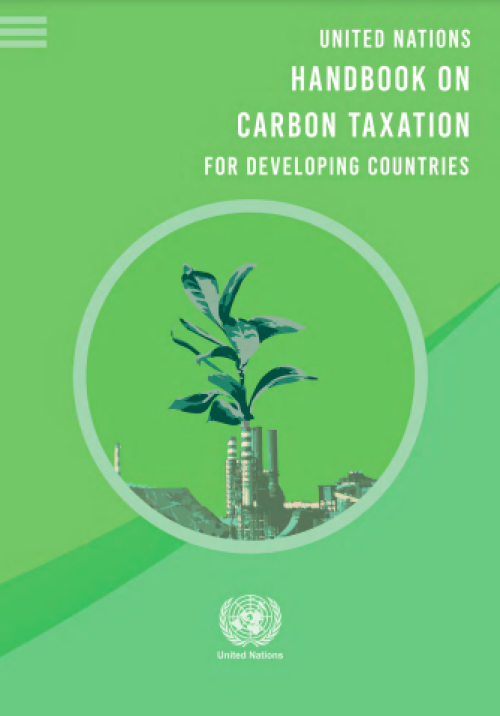
Environmental taxes are on the agenda of many developing countries, for both revenue purposes and for meeting countries’ commitments on climate change and sustainable development.
Carbon taxes are a policy option aimed at curbing carbon-based emissions responsible for climate change, in line with the commitments assumed by countries under the Paris Agreement. Carbon taxes put a price on the emission of greenhouse gases, thereby motivating companies to invest in cleaner technology or switch to more efficient practices. Likewise, consumers may be incentivized to invest in energy efficiency, change their lifestyle habits or, where options are available, switch to cleaner forms…
 Welcome to the United Nations
Welcome to the United Nations